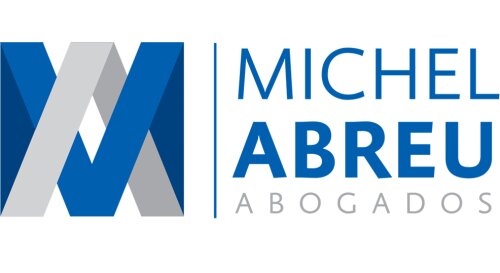Best Oil, Gas & Energy Lawyers in Punta Cana
Share your needs with us, get contacted by law firms.
Free. Takes 2 min.
List of the best lawyers in Punta Cana, Dominican Republic
About Oil, Gas & Energy Law in Punta Cana, Dominican Republic
Punta Cana, primarily recognized for its tourism sector, is part of the Dominican Republic's growing interest in developing its Oil, Gas, and Energy sectors. The country's energy landscape is undergoing significant changes with efforts to diversify energy sources, including increased attention to renewable energy. Punta Cana, being a part of the coastal area, poses unique challenges and opportunities for energy resources, necessitating a legal framework to manage exploration, production, environmental impact, and conservation.
Why You May Need a Lawyer
In Punta Cana, engaging with the Oil, Gas & Energy sectors involves navigating a complex array of legal requirements. Here are some situations where you might need legal advice:
- Entering into contracts for energy supply or development projects
- Securing permits for exploration or production activities
- Addressing environmental compliance and liability issues
- Negotiating joint ventures or partnerships in energy projects
- Resolving disputes over land use or resource rights
- Compliance with local and international energy regulations
Local Laws Overview
The Dominican Republic has specific regulations governing the Oil, Gas, and Energy sectors. Key aspects include:
- The Hydrocarbons Law: Governs the exploration, production, refining, and marketing of hydrocarbons.
- The Environmental Law: Establishes the requirements for environmental permits and assessments.
- Renewable Energy Incentive Law: Provides tax benefits and other incentives to encourage renewable energy projects.
- Labor Law: Regulates labor standards and conditions within energy projects.
- Land Use Regulations: Impact how land is allocated and used for energy developments.
Frequently Asked Questions
What licenses are required for oil exploration in Punta Cana?
Exploration licenses are granted by the Ministry of Energy and Mines after conducting necessary environmental assessments and ensuring compliance with local regulations.
Are there incentives for investing in renewable energy in Punta Cana?
Yes, the Dominican Republic offers tax incentives and reduced tariffs for businesses investing in renewable energy projects under its Renewable Energy Incentive Law.
How does the legal system address environmental concerns related to energy projects?
Environmental concerns are addressed through rigorous assessments and compliance with the Environmental Law, requiring permits and continuous monitoring.
Can foreign companies invest in the energy sector in Punta Cana?
Yes, foreign companies are welcome to invest, though they must comply with local laws and may benefit from legal consultation to navigate these regulations.
What are the major challenges faced by the energy sector in Punta Cana?
Challenges include balancing tourism development with energy exploration, regulatory compliance, and addressing technology and infrastructure gaps for new energy projects.
Is there a push towards clean energy in the region?
Yes, there is a significant interest in expanding clean energy sources, especially solar and wind, to meet both environmental goals and energy demands.
How can land disputes affect energy projects?
Land disputes can delay projects and increase costs. Legal advice is critical to navigate land use laws and resolve any conflicts that arise.
What are the penalties for non-compliance with energy laws?
Penalties can include fines, revocation of licenses, and legal action depending on the severity of the non-compliance.
Who oversees the regulation of the energy sector?
The Ministry of Energy and Mines is the primary regulatory body overseeing the energy sector in the Dominican Republic.
How does the government ensure fair competition in the energy market?
The government enacts regulations to prevent monopolistic practices and promote fair competition, alongside offering transparency in the bidding processes for energy projects.
Additional Resources
For further assistance, consider reaching out to these organizations:
- Ministry of Energy and Mines - for regulations and licensing inquiries
- National Energy Commission - for renewable energy projects and incentives
- Environmental Ministry - for guidelines on environmental compliance
- Local Chambers of Commerce - for networking with industry professionals
Next Steps
If you require legal assistance in Oil, Gas & Energy in Punta Cana, it is advisable to consult with specialized attorneys familiar with local laws and practices. Begin by identifying your specific needs, and reach out to law firms with a proven track record in the energy sector. Preparing documentation and having a clear outline of your project or dispute will facilitate more effective legal advice and representation.
Lawzana helps you find the best lawyers and law firms in Punta Cana through a curated and pre-screened list of qualified legal professionals. Our platform offers rankings and detailed profiles of attorneys and law firms, allowing you to compare based on practice areas, including Oil, Gas & Energy, experience, and client feedback.
Each profile includes a description of the firm's areas of practice, client reviews, team members and partners, year of establishment, spoken languages, office locations, contact information, social media presence, and any published articles or resources. Most firms on our platform speak English and are experienced in both local and international legal matters.
Get a quote from top-rated law firms in Punta Cana, Dominican Republic — quickly, securely, and without unnecessary hassle.
Disclaimer:
The information provided on this page is for general informational purposes only and does not constitute legal advice. While we strive to ensure the accuracy and relevance of the content, legal information may change over time, and interpretations of the law can vary. You should always consult with a qualified legal professional for advice specific to your situation.
We disclaim all liability for actions taken or not taken based on the content of this page. If you believe any information is incorrect or outdated, please contact us, and we will review and update it where appropriate.










